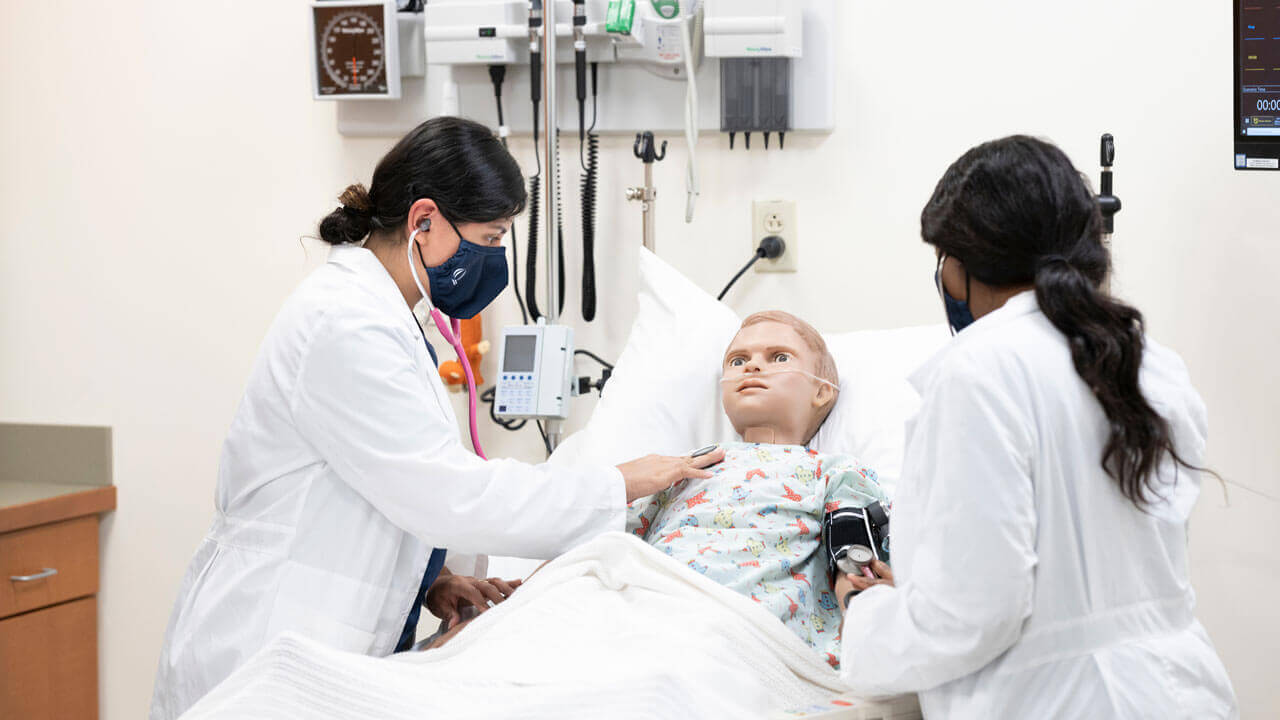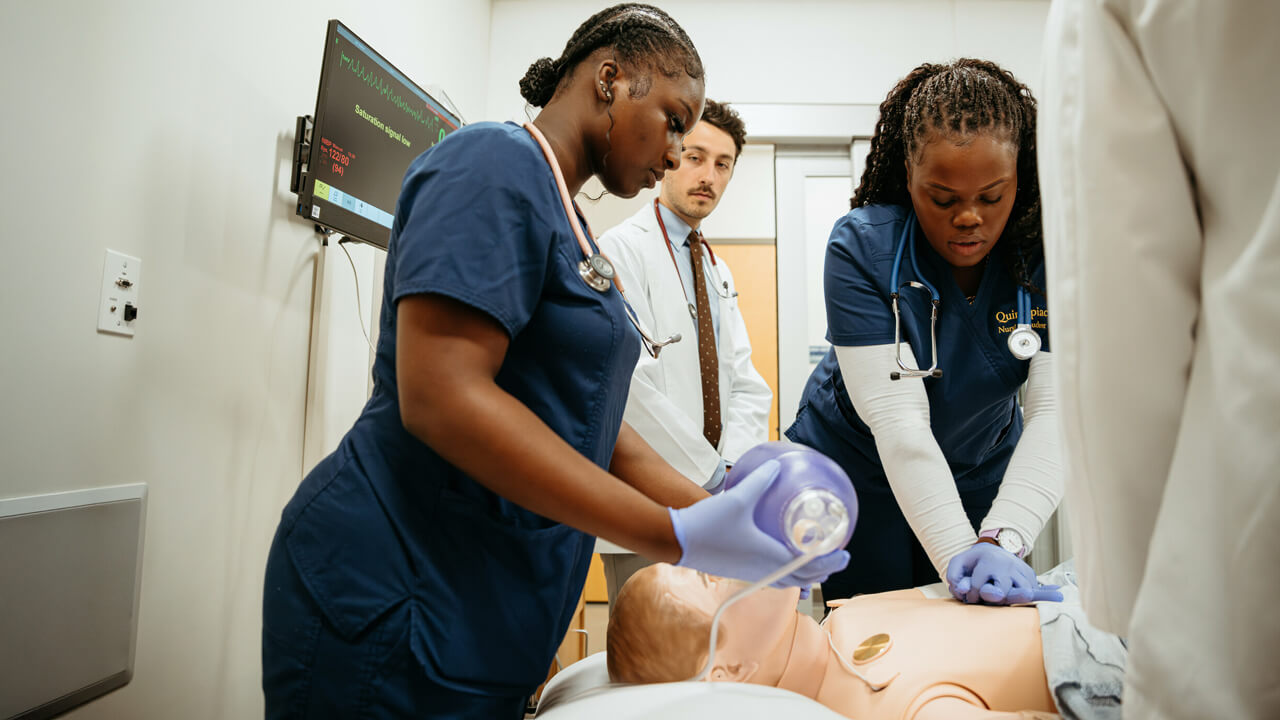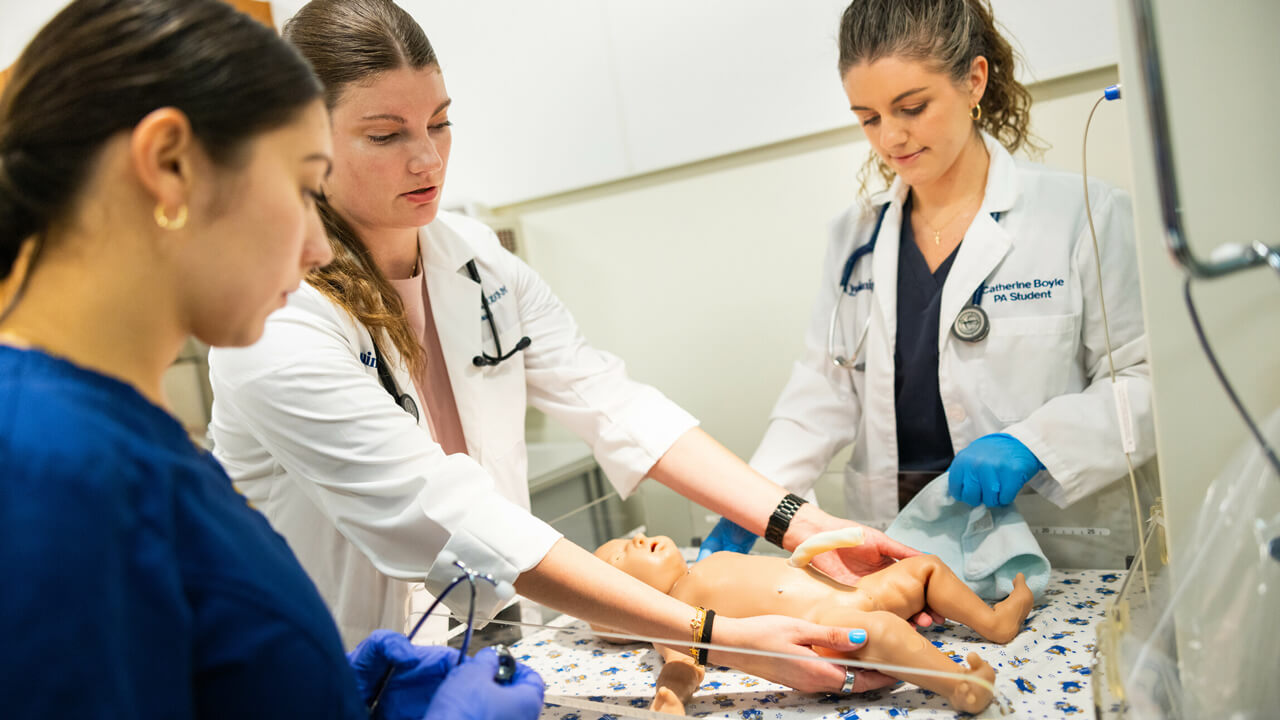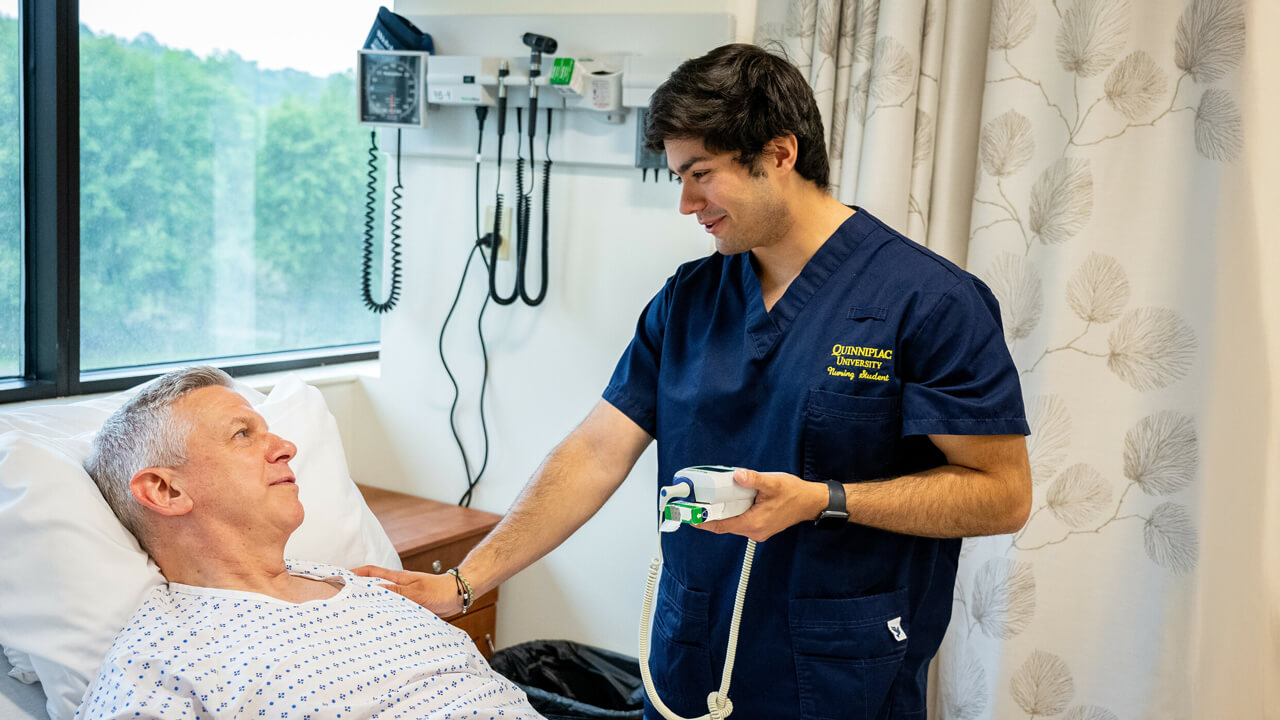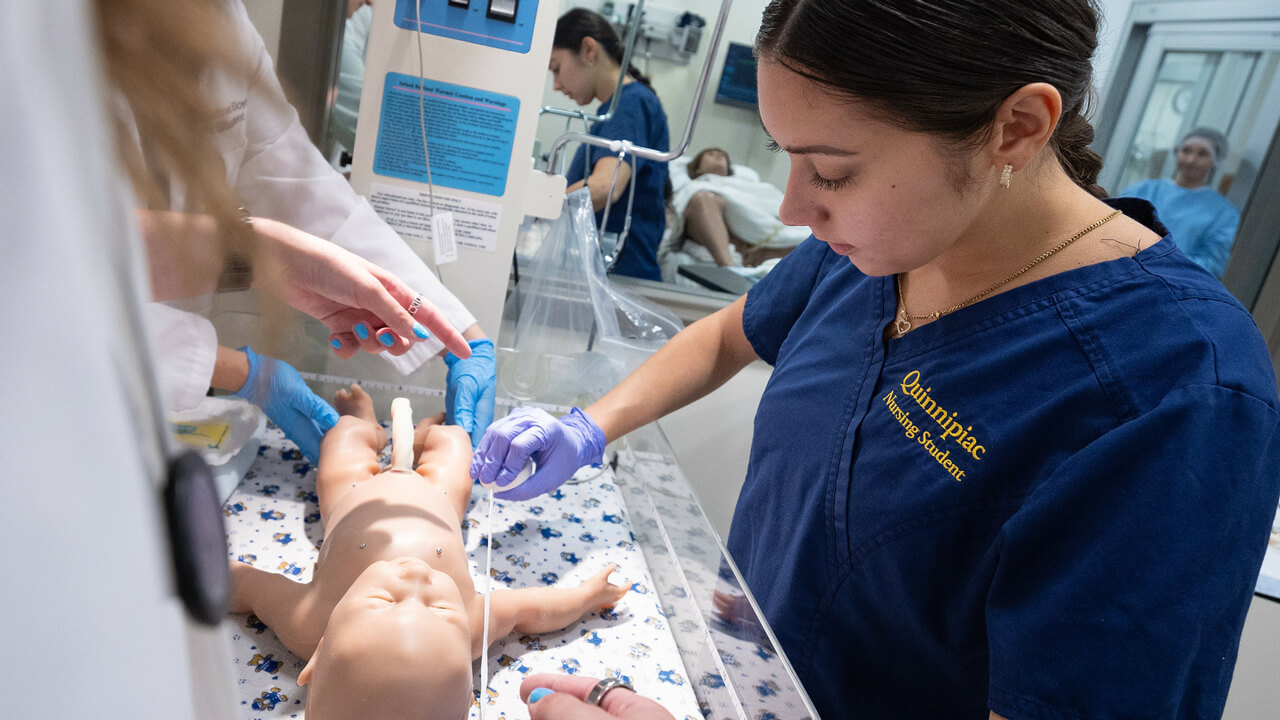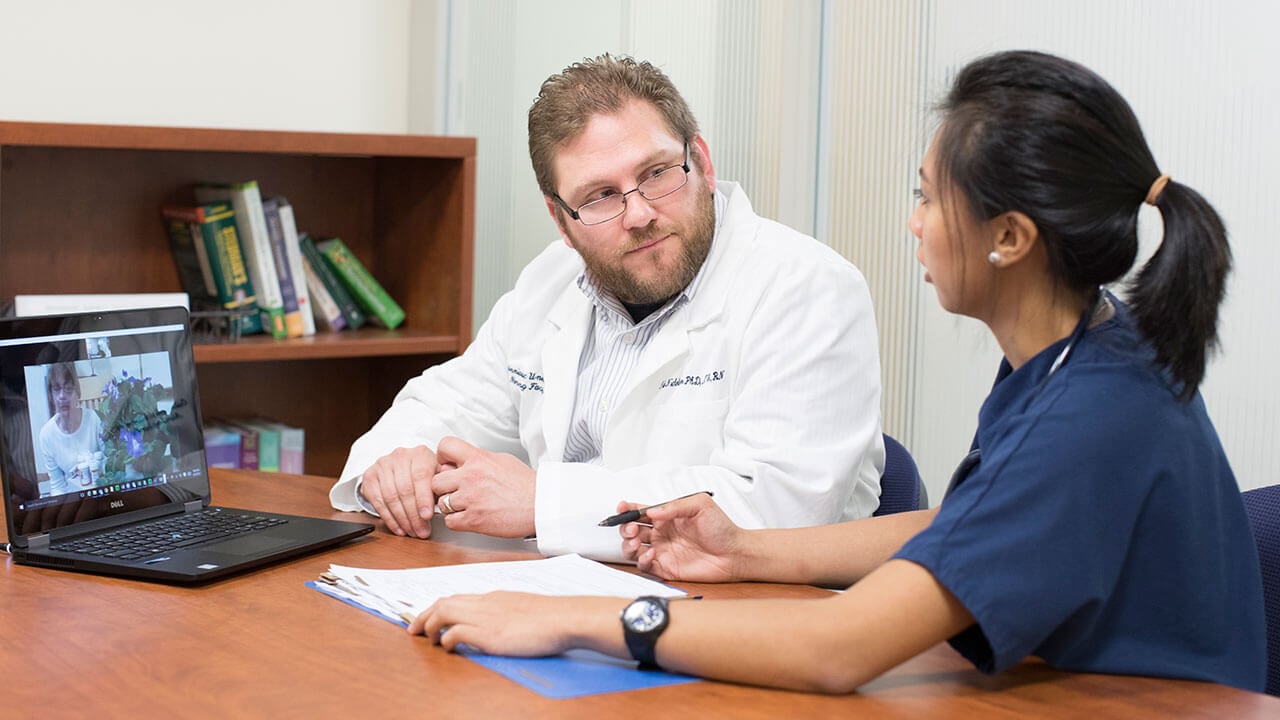
Clinical rotations begin in the fall semester of the junior year for the traditional BSN student and immediately for the accelerated BSN student. Clinical experiences offer hands-on learning with patients and the interprofessional care team at our partner institutions throughout the curriculum. Students apply what they have learned in purposefully selected units with an instructor in a group of 6-8 students.
Clinical Practicums:
- Core Nursing Practicum
- Women, Children and Families Clinical Practicum
- Adult Care Practicum I
- Psychiatric and Mental Health Nursing Clinical Practicum
- Adult Care Practicum II
- Communication and Public Health Nursing Clinical Practicum
- Transition to Professional Practice

